- Write Finance
The Turing Protocol: Why This Australian Thriller Deserves a Movie Deal
Every so often, a debut novel comes out of nowhere and captures a unique intersection of history, fiction, and cinematic imagination. The Turing Protocol by Nick Croydon is one of those books.
Released in mid-2025, this bold and genre-blending novel made a serious impact on the Australian book market and is now picking up international momentum. With its time-bending premise, wartime stakes, and intelligent plotting, it’s not hard to see why readers and critics alike are saying: this book should be made into a movie.
But beyond its cinematic potential, The Turing Protocol stands on its own as a well-crafted historical thriller and one of the most ambitious debut novels to come out of Australia in years.
What’s The Turing Protocol About?
At its heart, The Turing Protocol is a speculative thriller that reimagines the life of Alan Turing, the famed World War II codebreaker. But instead of focusing solely on his work with the Enigma machine, Croydon introduces a fictional twist: what if Turing had created a device that could send messages back in time?
The novel introduces us to this machine the Nautilus which Turing uses to help secure success for the Allied forces on D-Day. Knowing the danger and power of what he’s created, he entrusts it to the mother of his secret child, beginning a multigenerational legacy that spans decades of political and personal tension.
From Churchill’s war rooms to modern-day conflict zones, The Turing Protocol follows the descendants of Turing as each of them faces the same impossible question: if you could change history, should you?

A Genre-Bending, High-Stakes Story
Croydon’s writing is fast-paced, clean, and deliberate. The narrative skips between timelines but never loses clarity, and the way he handles scientific ideas is both smart and accessible. There’s just enough explanation for the speculative elements to feel grounded — but not so much that it slows down the action.
Blending historical fiction with science fiction, The Turing Protocol offers just enough of each to appeal to both camps. Fans of Ken Follett, Robert Harris, and Dan Brown will likely feel at home here — but there’s also a broader emotional and ethical depth that gives the novel staying power.
What sets the book apart isn’t just its concept, but how it uses that concept to explore modern questions: the responsibility of technology, the moral grey zones of war, and the personal cost of carrying knowledge that could shift the future.
“I wrote this novel as a tribute to Alan Turing — someone I’ve admired my whole life. I wanted to highlight both his genius and the injustice he suffered.”
Nick Croydon
Should The Turing Protocol Be a Movie?
Absolutely. In fact, it’s surprising it hasn’t already been optioned.
The book reads like a screenplay in waiting tightly plotted, sharply dialogue-driven, and filled with visual moments that feel made for the screen. There are sweeping historical backdrops, tense ethical confrontations, and a ticking-clock suspense structure that would lend itself perfectly to either a feature film or a high-end miniseries.
The character arcs particularly those of Turing’s descendants provide natural episodic pacing and emotional hooks, while the war-era sequences evoke the kind of grounded spectacle seen in The Imitation Game or Dunkirk.
A Strong Debut from a Surprising Source
What makes this release even more interesting is the author himself. Nick Croydon isn’t your average debut novelist. As the CEO of QBD Books, Australia’s largest bookstore chain, Croydon is already a prominent figure in the Australian publishing landscape. But with The Turing Protocol, he’s stepped out from behind the counter and into the creative spotlight — and the results speak for themselves.
Despite the obvious risks that come with public figures publishing fiction, Croydon has delivered a polished, commercially viable novel that holds its own against far more established names. His insider understanding of what readers want and how narratives resonate is evident throughout.
If there was ever a case for business leaders bringing value to creative fields, this book is it.
Critical Response & Public Reaction
The Turing Protocol was selected as QBD’s Fiction Book of the Month in August, and has since received strong coverage across Australian media. Good Reading Magazine gave it 4 stars, calling it “absorbing” and praising its “imaginative twists.”
Readers have also responded positively. With strong Amazon reviews, growing discussion on Goodreads, and social traction through Instagram Reels and YouTube interviews, the novel has organically built momentum — without relying on controversy or gimmick marketing.
You can also listen to Croydon talk about the book in-depth via his appearance on the Words and Nerds podcast, where he discusses his writing process, inspiration, and thoughts on the resilience of literature.
Where to Read It
If you’re curious, The Turing Protocol is widely available in all major formats:
Whether you’re into alternative WWII fiction, speculative thrillers, or just looking for a smart weekend read, this is one to check out.


